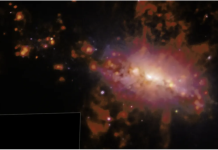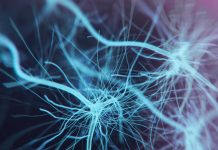A new Artificial intelligence (AI) system has been designed to examine specialised brain MRIs and proved accurate in diagnosing autism in children aged 24 to 48 months
The Artificial intelligence system has an accuracy of 98.5% in this diagnosis. These findings will be presented at the Radiological Society of North America (RSNA).
Diagnostic precision
Mohamed Khudri, B.Sc., a visiting research scholar at the University of Louisville in Kentucky, collaborated with a multi-disciplinary team to create a three-stage system for analysing and classifying diffusion tensor MRI (DT-MRI) scans of the brain. DT-MRI is a specialised technique to observe water movement along white matter tracks in the brain.
“Our algorithm is trained to identify areas of deviation to diagnose whether someone is autistic or neurotypical,” Khudri said.
The AI system operates by isolating images from the DT-MRI scans and extending specific imaging markers that signify the degree of connectivity between different brain regions. A machine learning algorithm analyses and compares these marker patterns in the brains of children diagnosed with autism to those developing brains.
The researchers applied their approach to analysing DT-MRI brain scans from 226 children aged between 24 to 48 months from the Autism Brain Imaging Data Exchange-II.
The dataset comprised scans from 126 children diagnosed with autism and 100 other developing children. The technology developed a sensitivity of 97% and an overall accuracy of 98.5% in correctly identifying those with autism.
“The idea behind early intervention is to take advantage of brain plasticity, or the ability of the brain to normalise function with therapy,” Dr. Barnes professor of neurology and director of the Norton Children’s Autism Center in Louisville, said.
Targeted treatment
According to the 2023 Community Report on Autism from the CDC, less than 50% of children diagnosed with autism spectrum disorder underwent a developmental evaluation by the age of three. 30% of the children meeting the criteria of autism spectrum disorder did not receive an official diagnosis by the time they turned eight years old.
The researchers noted that infants and young children with autism often experience delayed diagnosis due to various factors, such as limited capacity at testing centres.
Khudri emphasised that their AI system has the potential to streamline the management of autism with accuracy, currently reducing the time and expenses associated with the assessment and treatment process.
The AI system generates a comprehensive report outlining the affected neural pathways, the projected impact on brain functionality, and a severity grade that can guide early therapeutic intervention.
The researchers are actively progressing towards commercialising their AI software and seeking FDA clearance.
Editor's Recommended Articles
-
Must Read >> Tablet-based AI app revolutionises autism screening
-
Must Read >> Biomedical research and innovation, including autism














